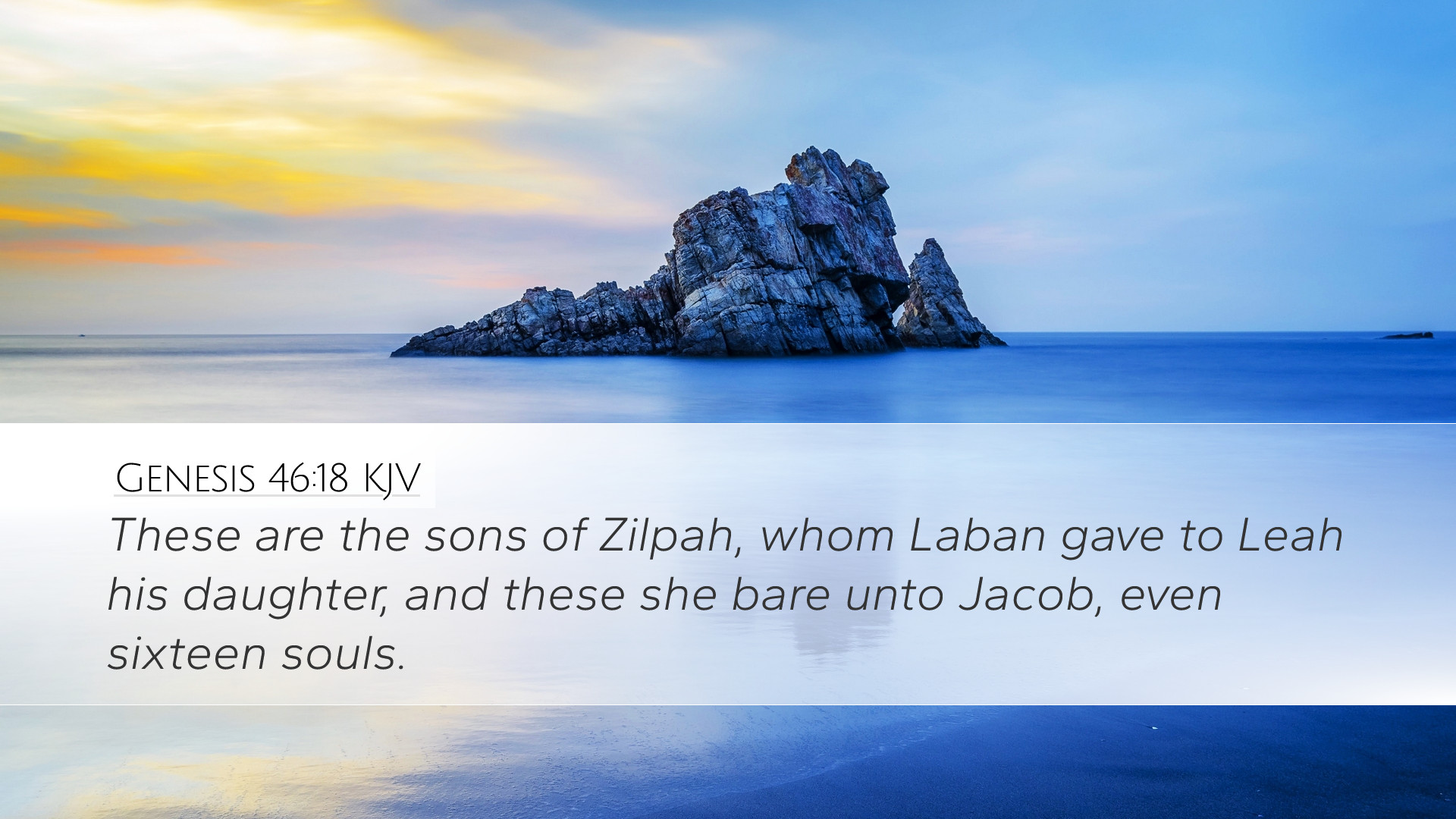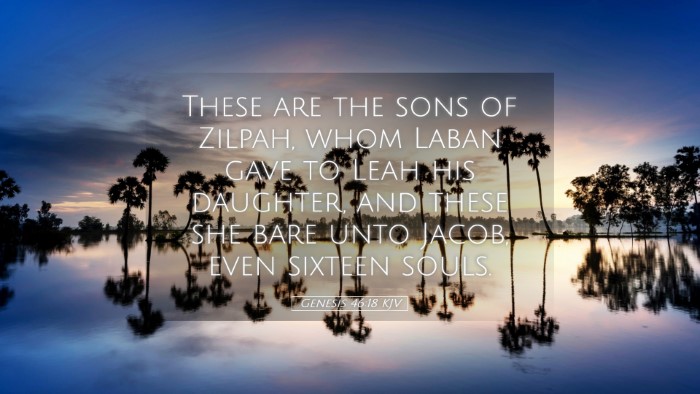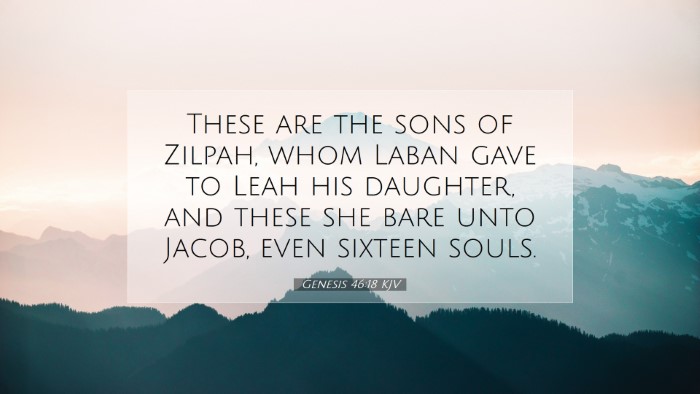Commentary on Genesis 46:18
Verse Context: Genesis 46:18 states, "These are the sons of Zilpah, whom Laban gave to Leah his daughter: and these she bare unto Jacob, even sixteen souls." This verse is part of the larger narrative where Jacob, now called Israel, is about to relocate his family to Egypt during a time of famine. It showcases the genealogy of Jacob and highlights the descendants of Leah's maid, Zilpah, as part of the covenant lineage that God promised to Jacob.
Significance of the Verse
This verse serves to document the familial connections and the fulfillment of God's promises to Jacob. It is essential for understanding the broader context of God's covenant with Israel, through which the tribes of Israel are established. The mention of the number of souls emphasizes the growth of Jacob's family and the importance of lineage in Israelite identity.
Insights from Matthew Henry
Matthew Henry notes that the listing of Zilpah’s sons is indicative of God's providence in fulfilling His promises. Zilpah, though initially a servant, becomes a significant figure in the genealogy of Israel. Henry emphasizes the idea of God's unmerited favor; despite being a less favored wife, her sons are included in the lineage of Jacob, showcasing God's grace and inclusiveness.
Key Themes:
- Genealogy and Divine Purpose: Each mention of Jacob's sons highlights God's sovereignty over familial lines.
- Growth of the Nation: The 16 souls mentioned not only reflect Jacob's immediate family but also foreshadow the development of a great nation.
- God’s Faithfulness: Despite challenges, God’s promises are realized through these individuals mentioned in the lineage.
Insights from Albert Barnes
Albert Barnes provides a deeper exploration of the names and numbers associated with Zilpah's children. He points out that the political and spiritual identities of Israel are deeply intertwined with their genealogical roots. Barnes underscores that Zilpah's sons represent not only Jacob's family but also the tribes of Israel that would emerge from this lineage.
Key Themes:
- Historical Document: This verse acts as a historical record, reinforcing the importance of identity and succession in Israel's narrative.
- Divine Selection: Each name carries significance, representing how God chooses individuals and families for His purposes.
- Legacy and Continuity: Emphasizing the continuity of God’s mission through generational lineage.
Insights from Adam Clarke
Adam Clarke provides a broader historical and theological context to this passage. He highlights the significance of polygenic family structures in ancient Near Eastern cultures, including the role of maids and concubines. Clarke emphasizes how God's plan incorporates these familial structures into the unfolding narrative of redemption.
Key Themes:
- Cultural Context: Understanding Zilpah’s status sheds light on the cultural practices of Jacob's era.
- Redemption History: The inclusion of all sons, regardless of their mothers' status, demonstrates God's redemptive plan for all humanity.
- Complex Families: Encourages reflection on God's work through diverse means, including complex family dynamics.
Practical Applications
For pastors, students, and theologians, Genesis 46:18 offers rich material for preaching and teaching on God's faithfulness to His people. Here are some practical applications:
- Understanding Identity: Emphasize the importance of family heritage in spiritual formation.
- Embracing Diversity: Recognize that God's family includes those from various backgrounds and circumstances.
- Hope and Promise: Build messages around God's unwavering promises, noting how He fulfills them in unexpected ways.
Conclusion
Genesis 46:18 is a foundational verse for understanding the development of Israel and God's ongoing relationship with His people. The insights gleaned from public domain commentaries allow for a deeper appreciation of the complexities of biblical narratives and the profound ways in which God works through familial and covenantal structures. This understanding enriches both personal faith and communal worship within the Church.


